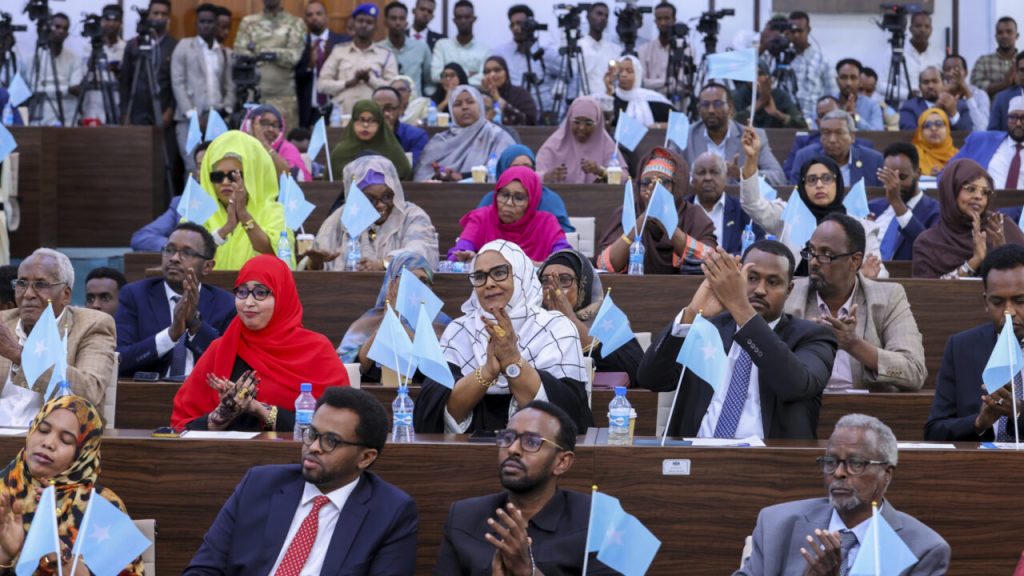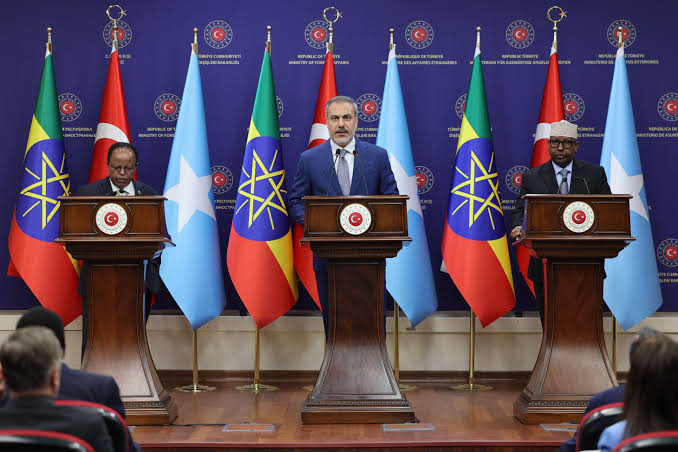Facebook Twitter (X) Instagram Somali Magazine - People's Magazine
In a significant move to stabilize the Horn of Africa, Europe is poised to play a pivotal role in supporting the development of a commercial trade corridor between Ethiopia and Somalia. This ambitious project, part of a broader effort to ease tensions between the two nations, could transform regional trade dynamics and bolster security in one of Africa’s most volatile regions.
The initiative comes after a year of heightened tensions between Ethiopia and Somalia, sparked by a controversial memorandum of understanding (MoU) signed in January 2024 between Ethiopia and the breakaway region of Somaliland. The deal, which promised Ethiopia access to the sea via Somaliland’s Berbera port in exchange for potential recognition of Somaliland’s independence, was met with fierce opposition from Somalia’s federal government. Somali President Hassan Sheikh Mohamud condemned the agreement as a violation of Somalia’s sovereignty, leading to a diplomatic standoff.
However, a breakthrough came in December 2024 with the Ankara Declaration, a Turkish-mediated settlement that has since paved the way for renewed dialogue between Ethiopia and Somalia. The agreement, which includes plans for a trade corridor connecting Ethiopia to a Somali port, marks a critical step toward de-escalation. On 11 January 2025, President Mohamud visited Addis Ababa to reestablish diplomatic ties, signaling a new chapter in bilateral relations.
 The proposed trade corridor, likely to run from Ethiopia to the port of Mogadishu, is seen as a cornerstone of the Ankara Declaration. However, its implementation faces significant challenges, particularly in light of Somalia’s fragile security environment. The militant group al-Shabaab remains a persistent threat, and the corridor’s construction will require robust security measures to protect infrastructure and workers.
The proposed trade corridor, likely to run from Ethiopia to the port of Mogadishu, is seen as a cornerstone of the Ankara Declaration. However, its implementation faces significant challenges, particularly in light of Somalia’s fragile security environment. The militant group al-Shabaab remains a persistent threat, and the corridor’s construction will require robust security measures to protect infrastructure and workers.
To address these challenges, the Somali government is working to mobilize local clan militias, particularly those affiliated with the Hawiye clan, which played a key role in pushing back al-Shabaab in 2022. These militias, supported by African Union (AU) peacekeeping forces and Ethiopian troops, will be critical in securing the corridor. The AU’s new peacekeeping mission in Somalia (AUSSOM), which officially began operations on 1 January 2025, will also play a vital role in maintaining stability. However, the mission faces funding shortfalls and uncertainties over troop contributions, including the potential withdrawal of Burundi, one of the largest troop contributors.
Europe, with its significant economic and security interests in the Horn of Africa, is well-positioned to support this ambitious project. The European Union (EU) is already a major contributor to Somalia’s security and development, funding AU peacekeeping missions and deploying civilian-military missions in the country. Under the Global Gateway framework, the EU can leverage its financial instruments to support the trade corridor’s development, partnering with Turkey and other regional stakeholders such as Saudi Arabia, Qatar, and India.
Germany and Italy, as leading European providers of development and security assistance to Somalia, are expected to take a leading role in this effort. By coordinating with Turkey and other international partners, the EU can help ensure the corridor’s success while promoting long-term stability in the region.
The trade corridor represents more than just an infrastructure project; it is a symbol of reconciliation and cooperation between Ethiopia and Somalia. For Ethiopia, it offers a long-sought solution to its landlocked status, reducing its reliance on Djibouti for trade transit. For Somalia, it provides an opportunity to strengthen its economy and consolidate its federal government’s authority.
As the project moves forward, European involvement will be crucial in addressing security challenges, mobilizing resources, and ensuring that local communities benefit from the corridor’s development. By supporting this initiative, Europe can not only advance its strategic interests in the Horn of Africa but also contribute to a more stable and prosperous region.

